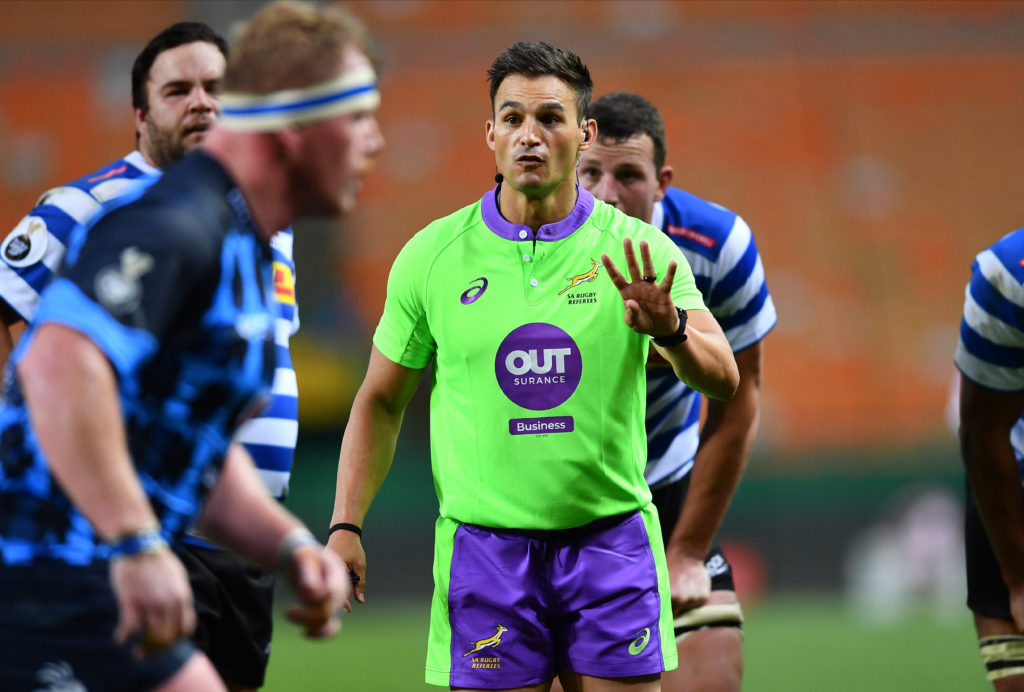The captain’s challenge law trial is good for the game, writes former Springbok captain JEAN DE VILLIERS.
The captain’s challenge – a new law variation that is being trialled – will only lead to a fairer and better game. I believe it’s been a great addition to tournaments like Super Rugby Aotearoa and the Rainbow Cup.
I look back to a few of the big games staged over the course of my own career – games that were swung or decided by one or two controversial decisions. I often wonder how those matches might have panned out if we had the power to challenge an official’s call.
World Rugby recently approved the introduction of three new innovative law variations in South Africa. The law trials – red-card replacements, the captain’s challenge and goalline drop-outs – are geared towards more positive play and enhanced decision-making outcomes. Some of these law variations have already been trialled across Super Rugby Aotearoa and Super Rugby AU.
Each team is allowed one captain’s challenge in the match. These can be used for try-scoring and foul-play incidents, or to challenge any refereeing decision in the last five minutes of a match. If a challenge is successful, the team keeps their challenge.
The challenge is applied more broadly from the 75-minute mark. After that point, the captain can use it to check any decision regardless of whether a try has been scored.
Some captains have made terrific use of this system to date, and their team has reaped the benefits. While there has been some criticism of the system, it’s important that more is being done – and more of the technology is being used – to ensure the correct call is made.
After all, sometimes referees get it wrong and sometimes they simply don’t see a transgression in the buildup to a try.
Bryan Habana scored a last-gasp try in the 2007 Super 14 final to help the Bulls clinch a 20-19 victory. In the buildup to that score, however, the Bulls used their hands in the ruck to win the ball back.
What if the Sharks captain had the chance to review that incident – which was completely missed by the officials on the day – and what if that try was ultimately disallowed? The Sharks, rather than the Bulls, would have won the game and the title, and it may well have altered the course of South African rugby history.
Having led the Stormers and the Springboks, I know what it feels like when a decision doesn’t go your way. And as I mentioned, it’s particular hard to accept when an incorrect call leads to a change in momentum, or even to a single score that means the difference between a win and a loss.
It’s not about who is awarded or denied in any particular incident. Rugby should be looking to get the right outcome as often as possible.
We’ve seen how a review system has resulted in greater accuracy across sports like cricket and tennis. The captain’s challenge should do the same for rugby.





